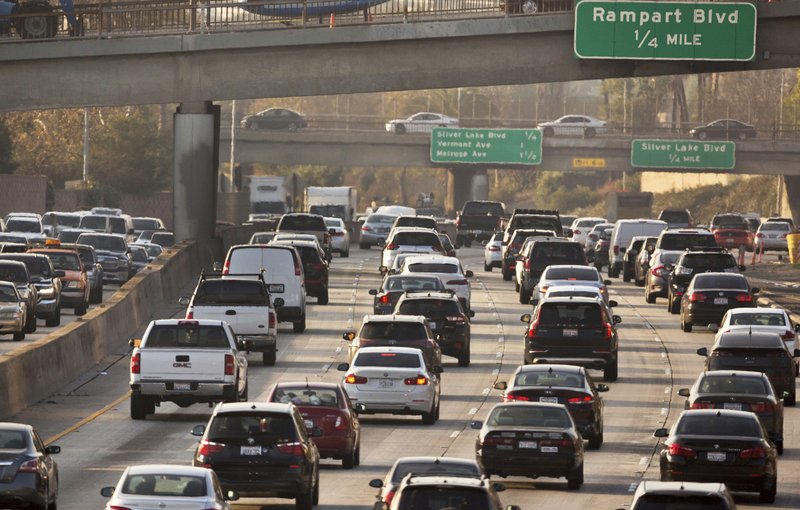The Trump administration is signaling that it could increase fuel economy standards, possibly compromising on its push to freeze them at 2020 levels.
In one of the administration’s hardest-fought battles to roll back Obama-era environmental regulations, two federal agencies submitted a final rule on gas mileage and greenhouse gas emissions on Tuesday.
But they would not give details until the rule is reviewed and formally published by the Office of Management and Budget.
Still, the National Highway Traffic Safety Administration says in a statement that it believes the rule, written jointly with the Environmental Protection Agency, will improve gas mileage and reduce emissions from the U.S. fleet of new vehicles.
The statement also said the rule would make new vehicles more affordable for Americans, thereby putting more new vehicles on the road that are safer than the ones they replaced.
“When finalized, this rule will be a win for all Americans,” the statement said.
Last year, the administration’s proposed freeze touched off a huge legal fight with California, which has authority under the Clean Air Act to set its own greenhouse gas emissions, and by extension, gas mileage standards. Trump revoked California’s authority, and the state challenged the decision in court.
Later, the auto industry split on the matter with four companies, Ford, BMW, Volkswagen and Honda, siding with California. Most other automakers went with Trump.
When the Trump administration released its proposed “Safer Affordable Fuel-Efficient Vehicles Rule” in August of 2018, it was panned by environmental groups who said the calculations were flawed.
Even the EPA’s Science Advisory Board, mainly appointed by Trump, questioned the rationale in a draft report late last year. “There are significant weaknesses in the scientific analysis of the proposed rule,” the board wrote.
The administration’s preferred option to Obama-era fuel efficiency standards was a freeze at 2020 levels, which it contended would save 12,700 lives from car crashes during the life of new vehicles through model year 2029. The logic was that relaxed fuel mileage standards would cut the cost of vehicles, making them more affordable and increasing sales. Since new vehicles are safer, lives would be saved.
In 2018, EPA staffers privately challenged the rationale for the freeze, saying the proposal would actually increase U.S. highway deaths.
In an email, senior EPA staffers told the White House that it would slightly increase highway deaths, by 17 annually.
(AP)











